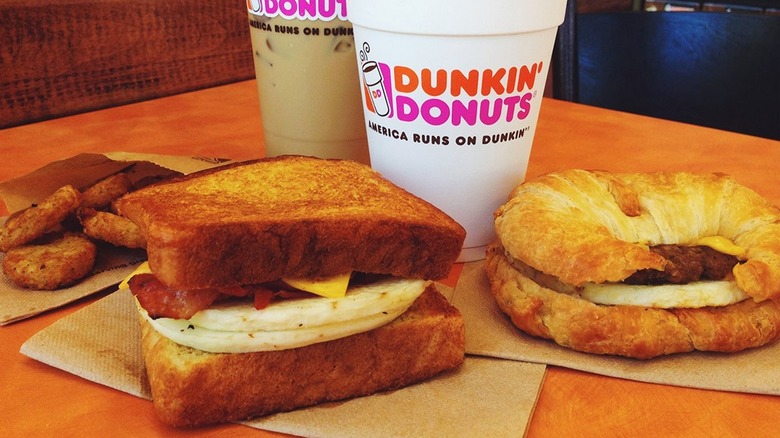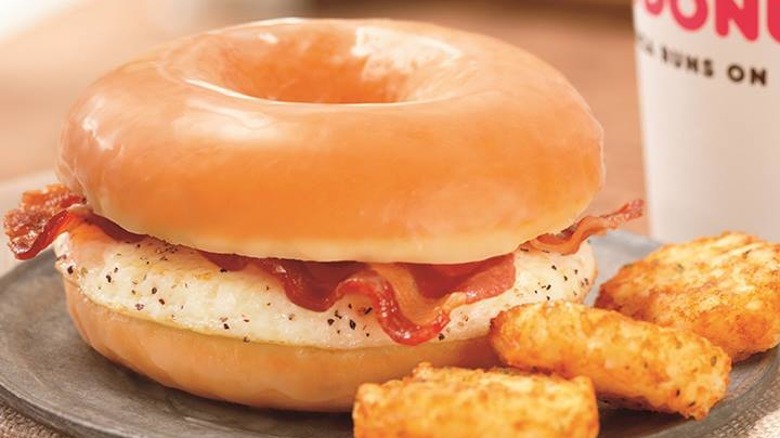Here's Exactly What Dunkin's Eggs Are Made Out Of
If Dunkin' is your preferred place for grabbing a quick breakfast on the go, you've likely sampled its eggs at some point. The egg patty is a staple part of the chain's breakfast sandwiches (including the one that's worth rush hour traffic), and you might also enjoy the omelet bites or the brisket scramble with a side of your regular Dunkin' iced coffee. But have you ever wondered what the eggs are actually made out of? We took a peek at the ingredient list and found there's a bit more to them than just eggs.
The egg patty in sandwiches is made primarily of egg whites, yolks, soybean oil, and water, but it also includes 2% or less of cornstarch, salt, flavoring, xanthan gum, cellulose gum, and citric acid. The scramble, whether you like it in a Chorizo & Egg Wrap or the Hash Brown Brisket Scramble, is made of whole eggs, skim milk, and just like the egg patty, also includes soybean oil, cornstarch, salt, xanthan gum, and citric acid.
It's glaringly obvious that the ingredient list includes a few food additives. The reason is that egg products aren't made directly at Dunkin' but rather arrive at each location pre-cooked and frozen. That allows employees to make your breakfast a lot faster ... but it also necessitates the preservatives.
Food additives preserve the texture, color, and flavor of Dunkin's eggs
Inevitably, when something is pre-cooked and then frozen, the texture and flavor could end up changing for the worse. That's where the food additives come in — they ensure the final product looks, feels, and tastes almost like the real thing. Xanthan gum, for example, is commonly added to frozen foods to keep their texture stable and consistent once they're thawed. It can also promote flavor release, which comes in handy when products are frozen for a long time. Cornstarch in the eggs primarily acts as a thickener but can also protect the eggs from overcooking and leaking water later on. Another thickener used is cellulose gum, which has an added benefit of prolonging the shelf life of the eggs.
If all the additives mentioned so far seem pretty reasonable to use, there is one that might leave you a bit perplexed: citric acid. What on Earth is one of the best substitutes for lemon juice doing in eggs? Well, it helps with preserving the natural color of the product — if Dunkin's eggs had an off-color, most customers would pass on eating them. We have to admit that an ingredient list full of additives doesn't sound the most app-egg-tizing, but Dunkin' is a fast food chain, after all. Its eggs may not be made from scratch, but they are quick, filling, and convenient; exactly what we're looking for on our busiest days.

